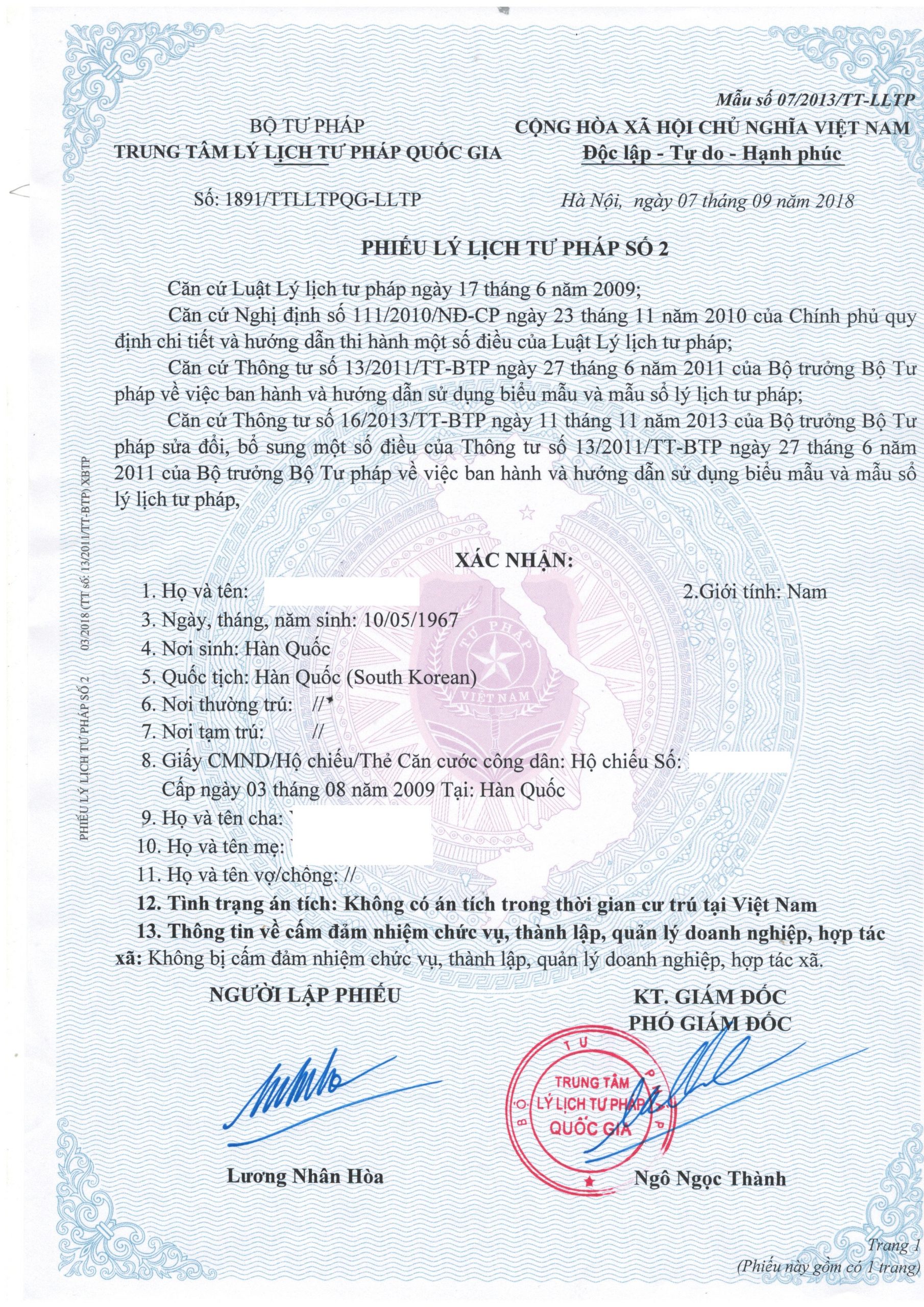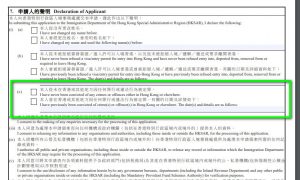

Visa Guides: The Specific Rules for Applying for Visas with a Criminal Record
Obtaining a visa when you have a criminal record presents unique challenges. It is crucial to understand the nuanced regulations and procedures of each country to navigate this process effectively. This guide details the specific rules and considerations for applying for visas with a criminal record, providing clear insight into the complexities and solutions. We will address common challenges and offer valuable strategies for increasing your chances of approval. This comprehensive guide will explore the specific rules, essential documents, potential obstacles, and effective strategies for applicants with a criminal record.
Understanding the Nuances of Visa Applications with Criminal Records
Visa Application Procedures
A significant hurdle in visa acquisition can be a criminal record. While some minor offenses may not pose significant problems, serious felonies can lead to visa denials. Understanding the nuances of each country’s regulations is essential for effective application. For example, some countries might place emphasis on the type of crime, the severity of the offense, and the length of time since the conviction. Others might prioritize factors like rehabilitation or community service.
Common Challenges for Applicants with Criminal Records
Applicants with a criminal record often face challenges beyond the standard visa application process. Potential visa denials can stem from a lack of understanding of the specific country’s requirements. It’s also easy to miss crucial documentation or fail to present your case effectively, leading to rejection. A lack of proper legal counsel may compound these difficulties.
Gathering Essential Documentation for Your Application
Comprehensive Documentation
Gathering comprehensive documentation is crucial. This involves detailed documentation of the charges, convictions, and sentences pertaining to the criminal record. For instance, official police reports, court documents, and even letters of rehabilitation or community service could be essential in some circumstances. It’s important to ensure all documentation accurately reflects your case and aligns with the requirements of the specific country. A thorough review of available resources should identify all necessary documents.
Demonstrating Rehabilitation and Good Character
Visa applications might require evidence of rehabilitation and good character. Letters of recommendation from employers, community leaders, or personal references could be helpful. These documents could showcase the applicant’s transformation since the conviction or their positive contributions to society. Financial stability also plays a role; a clear and detailed financial record demonstrating stability can strengthen your case.
Navigating Specific Visa Requirements by Country
Country-Specific Regulations
Each country has specific requirements for visa applications, even for applicants with criminal records. For example, the UK has a different approach to evaluating criminal records in visa applications than, say, the US or Canada. Therefore, the applicant should focus on and investigate the specific requirements of the country they wish to visit or reside in. Understanding these regulations is crucial for appropriate preparation. Researching country-specific laws regarding criminal records can prevent unforeseen obstacles.
Important Factors to Consider
Factors such as the type of offense, the severity, and the length of time since the conviction are important considerations in the application process. Applicants should meticulously detail these factors in their application materials to clearly communicate their circumstances. Some countries may require additional supporting documents, such as evidence of rehabilitation or community involvement.
Seeking Professional Legal Guidance
The Importance of Expert Advice
Consulting with an immigration lawyer specializing in cases involving criminal records is highly recommended. They can provide expert advice on the specific requirements of the country where you intend to travel. An immigration lawyer can also advise on assembling the right supporting documentation and help construct the best possible narrative to present your case. This approach can significantly increase your chances of a successful visa application.
The Benefits of Legal Representation
An experienced immigration attorney can navigate the complex legal procedures, ensuring the applicant understands the specific requirements and deadlines associated with their application. This expertise significantly reduces the chance of errors or omissions that could lead to a denial. They can also anticipate potential issues and proactively address them, protecting the applicant’s interests.
Overcoming Potential Obstacles
Visa Denial Reasons
Visa denials can occur due to a variety of reasons. Failure to meet the specified requirements, lack of proper documentation, a lack of detail in the application, or an inability to convincingly demonstrate good character could all contribute to denial. Understanding the reasons for possible denial is crucial in preparing for the application.
Developing a Robust Strategy
Developing a robust strategy that addresses potential obstacles is essential. This involves meticulous attention to detail, accurate documentation, and a well-crafted narrative that highlights rehabilitation, personal growth, and future plans. It’s crucial to present a compelling case that demonstrates a willingness to comply with the laws and regulations of the country.
Alternative Visa Options to Consider
Exploring Alternative Pathways
Exploring other visa options is important for applicants with a criminal record. These may be tied to specific occupations, family ties, or educational opportunities. Alternative pathways can potentially provide a more accessible route to lawful entry into the targeted country.
Researching Specific Visa Options
Applicants should research and fully understand the requirements for alternative visa categories. This could lead to opportunities not initially considered. For instance, students can apply for specific student visas or employees might discover opportunities in skilled worker programs that might not be impacted by a criminal record.
The Importance of Time Management
Strict Deadlines
Visa applications often have strict deadlines that must be met. Missing deadlines could negatively impact your application. A meticulous approach to time management is essential for ensuring all steps are completed promptly. Carefully calculating timeframes for each stage of the application process can help maintain on schedule.
Efficient Task Management
Staying organized and efficient in managing tasks can help avoid missed deadlines. Establish a timeline for each stage of the process, allocating specific time for research, document gathering, and consultations. This will improve your ability to meet the required deadlines and avoid any delays.
Applying for Visas with a Criminal Record: Frequently Asked Questions
What types of criminal records can significantly impact a visa application?
Criminal records vary in their severity and impact on visa applications. Minor offenses, such as misdemeanors, might have a less severe impact compared to serious felonies. The type of crime, its severity, and when it occurred are all key factors in the decision-making process of the visa authorities. It’s also important to understand that different countries have different criteria for evaluating these records. Therefore, it’s crucial to research the specific requirements of the country for which you’re seeking a visa.
What documentation is typically required beyond the standard visa application process?
Beyond the standard visa application forms, individuals with criminal records often need to provide detailed explanations of the offenses and their circumstances. This documentation should include details about the charges, convictions, sentences, and any time served. It may also include letters of recommendation, police reports, and financial statements demonstrating an ability to support yourself without reliance on public assistance within the country you are applying to. Each case is different and must be carefully considered by legal professionals.
In conclusion, navigating the visa application process with a criminal record requires meticulous preparation, comprehensive documentation, and a deep understanding of specific country regulations. By addressing each aspect of your case diligently, you can significantly increase your chances of a positive outcome. Remember, seeking professional legal advice from immigration lawyers specializing in such cases is highly recommended for enhanced support and strategy. Contact us today for a consultation and let us guide you through the complexities of this process.